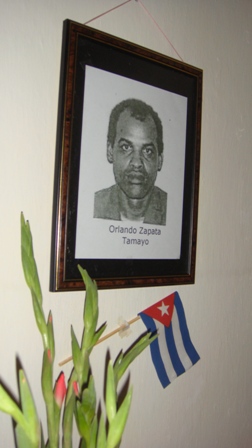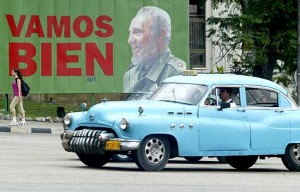For more information about this series of posts, please click here.
From Jorge A. Pomar
Are the intellectuals waking up?
Everything in Cuba is as rotten as in Hamlet’s Denmark. It all stinks. Even the Horaces of the UNEAC (Cuban Writers and Artists Union) stink. Yet another proof of this is the electronic call to arms just emitted by Desiderio Navarro in Havana as a result of the unexpected resurrection of Luis Pavón, once powerful, if not all-powerful, President of the National Council for Culture, via the programme Impronta (Imprint) on Cubavisión. Auturo Arango and Reynaldo González have already broken a lance on his behalf in what has become a promising campaign. Whatever the objections of those of us who are not on the inside — and it will be seen that mine are many and forceful — we should not only welcome the initiative of the combative as ever Desiderio, but also support it wholeheartedly, heaping fuel on the fire of good faith; that is, with the intention of forcing them to draw conclusions and see themselves as others see them.
But it is no less true that the arguments made leave a lot to be desired. Which is partly explained, of course, by the risk that they are running by sending such a protest on the Intranet. What is not easily explained is what can be inferred from their captious arguments, the implications and underlying meanings derived from their words.
According to all three — who have signed up to the ideas of the so-called ‘criticism tsar’ in Cuba, Ambrosio Fornet — Pavón and a couple of minor civil servants (among them Lisandro Otero, who they are careful not to mention as he is currently fashionable in the vile on-line literary magazine La Jiribilla, but he was Pavón’s second-in-command) were responsible for an unfair cultural policy (1967-1971), now happily left behind. In their eyes, with the public reappearance of Pavón the shadow of the Leviathan of the ‘Pavonado’ can be seen again, threatening the freedom (?) of the ‘true’ creatives.
It is a version of the tale of the noble king applied to his majesty Fidel Castro, who in half a century has never shown signs of acknowledging the corrupt actions of his evil ministers. In fact, the ‘silence and passivity of almost all of them’, the ‘complicity and opportunism of many’, which Desiderio puts in brackets, are still characteristic of the attitude of the Island’s intellectuals today. The troubles of writers and artists did not finish in 1971, as Fornet would believe, or have the rest of us believe.
Pavón, who was certainly no angel, he has been the favourite scapegoat since 1971 of those who, rightly or wrongly, like to think of themselves as his victims. It would take a casuistic analysis, a task in which I have no interest, to determine the role that each played then, or plays now. However, Pavón’s offence consists, no more and no less, in having been the figurehead, the instrument of the Revolutionary Government which carried out mercilessly the cultural policy of a Revolution which the members of the UNEAC applauded, and still applaud in their show of protest — rapturously at a time of jails bursting at the seams and firing squads overburdened with work. Those ‘plentiful 60’s’ of which Desiderio speaks were, in fact, the cruelest years of Castro’s rule.
After swallowing all this rubbish without complaint, after condemning like Cain colleagues who fell from grace every time they were asked to do so, and above all, living rather better than the great unwashed thanks to the subsidies in dollars (now CUCS) of the UNEAC, likewise the prizes and the trips abroad etc., I fear it will be sufficient for the charming (with the literati almost always) “comrades” of State Security to give them clip round the ear, if they haven’t done it already given the gravity of the situation, for them to start to walking crab-wise again. It would be a pleasant surprise for me to discover that I am wrong. Clearly, they do not feel any guilt, educated Little Red Riding Hoods from the story of the good king, constantly misinformed. however, their greatest merit in the end of the Five Gray Years (which is now a “Dark Half-Century”) has been to live with their backs to the national drama, shut in their ivory towers during the three ashen decades of the wolverine Pavón.
On the other hand, they know very well the price of protest. That’s why, out of an instinct for self-preservation, they have never dared do it. When, to take one example, in 1989 I protested about the upcoming execution by firing squad of General Ochoa and his company during a plenary session of the UNEAC, they all responded with silence. “You’re crazy! and immediately, by order of Abel Prietrio, who was chairing the session they moved on to the matter which really concerned them: How to pick up a few dollars making some artistic or literary contribution to the then resurgent tourist industry?
Willingly or by force, far from supporting it, they signed the UNEAC’s 1991 official protest against the Letter of the Ten, a range of moderate reforms which attempted to reduce the misery of most Cubans. In contrast, they didn’t oppose the execution in 2003 of those three young, impoverished black men, who were only trying to get away from the paradise famed in so many poems and tales. And of course they kept very quiet about Raul Rivera and those condemned in the Black Spring. The list of their public silences (in private they sometimes dare to express their condolences), complicities and collaborations could go on indefinitely.
Why not, then, give Luís Pavón, who in 30 years could well have reconsidered and be a different man, the benefit of the doubt? Any court would consider his crime “spent”, and in any case, no life was lost. Not so the pristine Reynaldo González, who makes no bones about bringing up the “Nazi Holocaust of the Jews”. Incidentally, anticipating a possible return of the ‘perestroikist’ (let’s not forget, please) Carlos Aldana, he encourages the fear that “the tough guys” might return. Reynaldo, get this for once: “the tough guys”, with a healthy bunch of opportunists and social climbers of all kinds, now have a stronger than ever grip on power and “among the indolent curled up at their posts” the more intellectuals gather, the more they keep their heads down. Not all of them, of course. Quality counts too.
The “Cuban intellectual field”, Arturo, has not “become over-complicated”; rather it has been corrupted to the core. The “luck of the revindicated blacks”, and of those who demand nothing, is still as black as their skin. On the television they are only given roles as slaves, guerrilla fighters and beggars; in real life they are forbidden access to management posts in the dollar economy. Ask “Ambia”, who I heard tell the story again in a video filmed in his lovely Parque Trillo. Homosexuals have made some progress but, outside the world of culture, they are still stigmatized. Tolerance is not the same as acceptance. The “belligerent right” and “passive pragmatists” you speak of, what are they, if not the eloquent result of the “success” of the current culture policy? Give them their full names, if you would. As for the rest, no one thinks, or disagrees, “from the left and from the revolution”. It is good enough to do it with the brain, which is divided in two hemispheres for a reason.
To state that Fidel, with his sadly famous “Words to Intellectuals”, was trying to dispel the fear of “those creators who are neither revolutionaries nor counter-revolutionaries” (Desiderio mentions Heberto Padilla, whose name he doesn’t use, as it’s taboo) seems to me if not an act of political procurement, at least an extravagant piece of deliberate nonsense. It’s laughable. The leitmotiv of this speech, plagiarised from Mussolini by the way, leaves no room for doubt: “Within the Revolution, everything; Against the Revolution, nothing”. Tutto nello Stato, niente al di fuori dello Stato, nulla contro lo Stato, declared Il Duce on 28 October 1925. Translate. You’ll remember, nostalgic Desiderio that, after listening to Fidel in the Function Room of the National Library in June of 1961, Virgilio Piñera took the floor and mumbled, “I am very much afraid. I don’t know what I am afraid of, but that is all I have to say”:
And so, if our ineffable ‘creatives’ protest now, about this televisual trivia heavy with bad omens, it’s more because of their simple professional selfishness. The privileges and cash benefits which, in order to keep them onside, their cultural paymaster Abel Prieto has granted them with the blessing of the Great Leader. The suffering, the deprivation, of the vast majority of the population, doesn’t seem to matter to them in the least, outside the world of literary fiction. Although we know that, inside, they too suffer, From bad conscience.
The television programme given over to Pavón does, at least, break the routine of the usually yawn-inducing schedules in which an important place is given to the self-promotion of the victims of that bête noir of Cuban culture. At last something worth seeing on Cubavisión, among all the usual ritual, triumphalism, creole tradition and 19th Century art! Even though it’s just to work up some alarm, like Desiderio and company. Alarm that I share, since it is very clear that behind the grandiose demands of Pavón lies the hand of the Raulist generals. Bad omens for art during the approaching handover of power. With all this, as far as I’m concerned, I would consider it acceptable as long as it ended the misery of the population and, above all, doesn’t last longer than the biological clock of the Castrist old guard. Art can wait. That’s how direct and right-wing I am.
Besides the reservations I’ve set out, I shall not hesitate a moment in supporting a protest that, although it strikes me as timid, wet and confused, could be the trigger for a far-reaching political and ideological debate. My respects to Desiderio. Congratulations! Our intellectuals have to start somewhere. In the end it might be that minimalism works better in politics, which tolerates it more, than in literature, where it requires higher levels of excellence. If only this unpleasant media event might serve to waken the intellectuals from their long, Sleeping Beauty-like, slumber, and give them courage to include all Cubans in their fair demands and, using their energy for nobler causes, finally start to play their proper role in an Island that is at the most important crossroads in its history, but doesn’t appear to know where it’s going. About time. Now we must hope they don’t disappoint yet again.
Jorge A. Pomar
Germany
Translated by: Jack Gibbard
January 2007
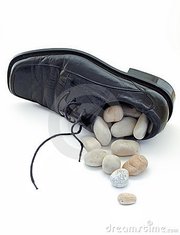 I don’t intend to persuade anyone that Cuba is some kind of hell. Nor to change the mind of those who imagine that it’s a paradise. But it still bothers me to read in the national press that Washington is taking measures to tighten the embargo.
I don’t intend to persuade anyone that Cuba is some kind of hell. Nor to change the mind of those who imagine that it’s a paradise. But it still bothers me to read in the national press that Washington is taking measures to tighten the embargo.
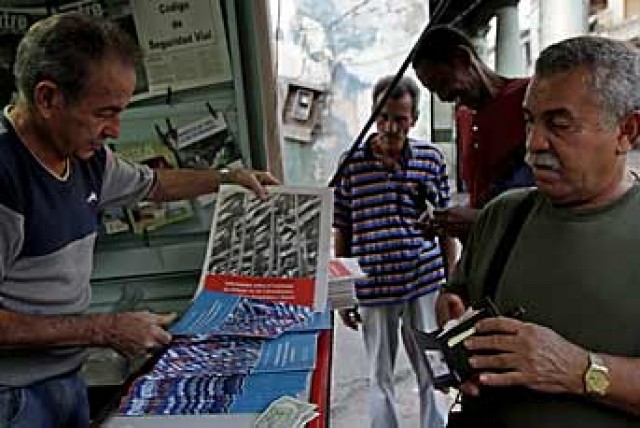 The streets of the island were full of comments after, around the middle of the month, the government brought out a paper with the debates of the congress, and a leaflet with the ideas that were passed, confirming that Cubans will be able to sell their houses and cars, and in the future to travel as tourists.
The streets of the island were full of comments after, around the middle of the month, the government brought out a paper with the debates of the congress, and a leaflet with the ideas that were passed, confirming that Cubans will be able to sell their houses and cars, and in the future to travel as tourists.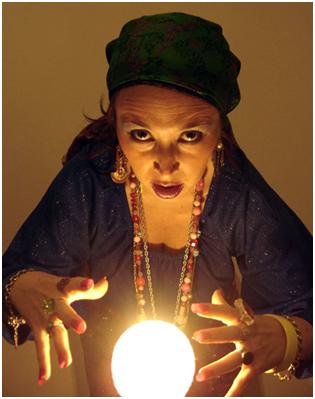 The court of Camagüey sentenced Delvis David Peña Mainer to 40 years in jail, for the brutal murder with a machete of 23-year-old Yeinier Moreno Leyva and his wife, 17-year-old Yuliet Urquiz Batista.
The court of Camagüey sentenced Delvis David Peña Mainer to 40 years in jail, for the brutal murder with a machete of 23-year-old Yeinier Moreno Leyva and his wife, 17-year-old Yuliet Urquiz Batista.